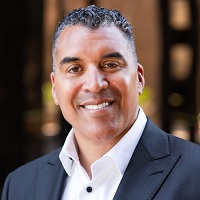Investing in Senior Housing: Why 2025 Might Be the Sector’s Best Year Yet
As America ages, the demand for homes and care for older folks will increase, presenting some recession-resilient investment opportunities.


Profit and prosper with the best of Kiplinger's advice on investing, taxes, retirement, personal finance and much more. Delivered daily. Enter your email in the box and click Sign Me Up.
You are now subscribed
Your newsletter sign-up was successful
Want to add more newsletters?

Delivered daily
Kiplinger Today
Profit and prosper with the best of Kiplinger's advice on investing, taxes, retirement, personal finance and much more delivered daily. Smart money moves start here.

Sent five days a week
Kiplinger A Step Ahead
Get practical help to make better financial decisions in your everyday life, from spending to savings on top deals.

Delivered daily
Kiplinger Closing Bell
Get today's biggest financial and investing headlines delivered to your inbox every day the U.S. stock market is open.

Sent twice a week
Kiplinger Adviser Intel
Financial pros across the country share best practices and fresh tactics to preserve and grow your wealth.

Delivered weekly
Kiplinger Tax Tips
Trim your federal and state tax bills with practical tax-planning and tax-cutting strategies.

Sent twice a week
Kiplinger Retirement Tips
Your twice-a-week guide to planning and enjoying a financially secure and richly rewarding retirement

Sent bimonthly.
Kiplinger Adviser Angle
Insights for advisers, wealth managers and other financial professionals.

Sent twice a week
Kiplinger Investing Weekly
Your twice-a-week roundup of promising stocks, funds, companies and industries you should consider, ones you should avoid, and why.

Sent weekly for six weeks
Kiplinger Invest for Retirement
Your step-by-step six-part series on how to invest for retirement, from devising a successful strategy to exactly which investments to choose.
The results of the 2024 election are offering investors a clearer picture of the potential economic and policy landscape under a second Trump administration. As a historically resilient sector, senior housing continues to present attractive opportunities for those looking to navigate the evolving market. While breaking into this space can be challenging for individual investors, a solid understanding of the industry and partnerships with experienced professionals can open doors to this promising asset class.
Senior housing continues to be an attractive real estate sector for investors because of the sheer number of people who might soon need it. According to the U.S. Census Bureau, by 2030, all Baby Boomers will be age 65 or older. This phenomenon, often referred to as the Silver Tsunami, presents opportunities in the real estate sector, as investors and developers work to create and expand facilities that cater to these demographic shifts.
As one of the largest property types in health care real estate, senior housing plays a vital role in offering essential housing and care for the aging population. Vehicles like Delaware statutory trusts (DSTs) and real estate investment trusts (REITs) provide more accessibility to investments in this growing market.
From just $107.88 $24.99 for Kiplinger Personal Finance
Become a smarter, better informed investor. Subscribe from just $107.88 $24.99, plus get up to 4 Special Issues

Sign up for Kiplinger’s Free Newsletters
Profit and prosper with the best of expert advice on investing, taxes, retirement, personal finance and more - straight to your e-mail.
Profit and prosper with the best of expert advice - straight to your e-mail.
Growing health care demand
Chronic disease is the leading cause of health care spending in the U.S. today. Currently, some 50% of the U.S. population has a chronic disease, creating an epidemic, and 86% of health care costs are attributable to chronic disease. As America ages, the demand for senior housing and care will increase.
According to the National Investment Center, “Senior housing and care is the only commercial real estate asset class that experienced positive rent growth during the Great Recession.” Because it is a needs-based investment where the tenants rely on the amenities and services provided, it is “recession resilient” to an extent. This makes it a stable investment option for investors looking for recession-resilient opportunities.
First, what are the types of senior housing? Senior housing is a broad classification for housing communities that cater to long-term residents over a certain age. Before investing in one of these facilities, you should understand their specialties and how they differ.
- Independent living communities. These are usually one- to two-bedroom apartments with kitchens and laundry facilities with supportive services such as meals, housekeeping, laundry, fitness classes, social activities and transportation. However, some are strictly residential units where 55-plus adults live without the option of additional services.
- Assisted living facilities. These are designed with private or semiprivate units to house residents with disabilities or who are unable to live independently. In addition to the supportive services independent living offers, these facilities help with activities of daily living such as bathing, grooming, eating, dressing, toileting, shopping and managing money and work with outside health care providers to ensure residents receive the care they need. Differences exist between the services and level of care offered from one assisted living facility to the next because of state regulations.
- Memory care facilities. These are licensed health care facilities that specialize in caring for older adults living with Alzheimer's disease, dementia and other cognitive impairments. These facilities provide an environment for residents to continue to live engaged, social and active lifestyles while an on-site nursing staff meets their physical and emotional needs. In addition, these facilities are highly secured to protect residents who are prone to wandering. While many memory care units operate independently, others are special care units within a general assisted living facility.
- Skilled nursing facilities. These have licensed nursing staff 24 hours a day for patients requiring round-the-clock care. Often, these facilities offer rehabilitation and other specialized services to those recovering from an accident, surgery or other health issues. These services could include physical therapy, speech therapy, occupational therapy, social services, medications and other services necessary to the health and wellness of the patient. These facilities are more appropriately defined as senior care rather than senior housing. The patient's stay is usually shorter term, and they can receive a higher level of treatment than the previously mentioned facility types.
Operations and acuity levels
Senior housing facilities can differ significantly in their acuity or level of care. The level of care required of a facility completely changes how the property is operated and, ultimately, how the facility is valued.
Operations are tied directly to the underlying real estate, so working with someone highly experienced in the senior housing real estate space is essential when purchasing in these asset classes. In addition, understanding the operating business is crucial to making an intelligent investment. The operator is responsible for maintaining regulation compliance, bringing in staff and attracting customers.
Overall, you want to ensure a prospective investment has management you can trust on an operational and investment acquisition level.
Understanding investment risk
Senior housing encompasses several benefits and risks as an investment in both a property and a business. Make sure you understand the risks and choose eligible properties that can mitigate those risks. Lawsuits, staff turnover and heightened regulations are essential to consider. In addition to the risks commonly associated with real estate, senior housing has some unique challenges. As we saw during the pandemic, legislative risk can present material headwinds to cash flow, occupancy and expenses.
Furthermore, there may be risks associated with the success of the management of the facilities, depending on the investment vehicle selected to invest in the sector. These potential risks are not a reason not to invest, but they illustrate the importance of strategic investments.
How can you invest in senior housing?
Purchasing a senior housing facility outright as an investment is out of reach for most, but that doesn't make it inaccessible to real estate investors overall. A Delaware statutory trust structure allows a group of investors to purchase a fraction of a property. DSTs are reserved for accredited investors, so they may be out of reach for some investors. However, they also qualify for 1031 exchanges for tax-efficient real estate investing, whereas REITs do not.
A REIT allows investors to pool their money to purchase a property. This option is suitable for investors who either don't have a high net worth or don't want to spend too much on one investment and would like a passive way to invest in real estate — the investor purchases shares of a company that owns the property.
Investing in senior housing through these vehicles could be an excellent way for investors to enjoy the benefits of owning real estate without having the challenges of being the landlord. The sponsor will take care of the facility's day-to-day operations, allowing the investor to enjoy passive income in the long term.
Why is now the best time to invest in senior housing?
With a new administration taking office, investors can anticipate policy shifts that may impact real estate. During his first term, President Donald Trump historically supported policies favorable to the industry, including defending 1031 exchanges during the Tax Cuts and Jobs Act negotiations of 2017. With Trump’s campaign promises of less regulation, federal tax reductions and rate cuts, many investors are already strategizing on how to capitalize on the anticipated policy changes.
These potential shifts could encourage increased market activity, spurring further investment in real estate. Amid this evolving landscape, senior housing stands out as a compelling asset class, driven by the convergence of policy momentum and the growing demand from aging demographics. For investors, this sector offers both financial opportunity and the chance to meet a pressing societal need.
Related Content
- Eight Signs You Might Be Ready to Start Investing in Real Estate
- How to Grow Your Wealth Like the Real Estate Moguls Do
- Drop and Swap 1031 Exchange: A Guide for Real Estate Investors
- The Myth of Passive Real Estate Investing
- Retirement Planning? Don’t Forget About Investment Real Estate
Profit and prosper with the best of Kiplinger's advice on investing, taxes, retirement, personal finance and much more. Delivered daily. Enter your email in the box and click Sign Me Up.

Edward Fernandez is President and Chief Executive Officer of 1031 Crowdfunding. With three-year revenue growth of 482%, 1031 Crowdfunding received ranking No. 1348 among America’s Fastest-Growing Private Companies on the Inc. 5000 list. Mr. Fernandez holds FINRA Series 6, 7, 24, and 63 licenses and is a Forbes Business Council Member. He has over 20 years of inside and outside sales experience and is personally involved in raising over $800 million of equity from individual and institutional investors through private and public real estate offerings. He is highly skilled in the simplification of highly complex real estate strategies and sophisticated investments and is regularly featured on Forbes, Inc., and the TD Ameritrade Network.
-
 Quiz: Do You Know How to Avoid the "Medigap Trap?"
Quiz: Do You Know How to Avoid the "Medigap Trap?"Quiz Test your basic knowledge of the "Medigap Trap" in our quick quiz.
-
 5 Top Tax-Efficient Mutual Funds for Smarter Investing
5 Top Tax-Efficient Mutual Funds for Smarter InvestingMutual funds are many things, but "tax-friendly" usually isn't one of them. These are the exceptions.
-
 AI Sparks Existential Crisis for Software Stocks
AI Sparks Existential Crisis for Software StocksThe Kiplinger Letter Fears that SaaS subscription software could be rendered obsolete by artificial intelligence make investors jittery.
-
 Quiz: Do You Know How to Avoid the 'Medigap Trap?'
Quiz: Do You Know How to Avoid the 'Medigap Trap?'Quiz Test your basic knowledge of the "Medigap Trap" in our quick quiz.
-
 5 Top Tax-Efficient Mutual Funds for Smarter Investing
5 Top Tax-Efficient Mutual Funds for Smarter InvestingMutual funds are many things, but "tax-friendly" usually isn't one of them. These are the exceptions.
-
 Why Invest In Mutual Funds When ETFs Exist?
Why Invest In Mutual Funds When ETFs Exist?Exchange-traded funds are cheaper, more tax-efficient and more flexible. But don't put mutual funds out to pasture quite yet.
-
 We Retired at 62 With $6.1 Million. My Wife Wants to Make Large Donations, but I Want to Travel and Buy a Lake House.
We Retired at 62 With $6.1 Million. My Wife Wants to Make Large Donations, but I Want to Travel and Buy a Lake House.We are 62 and finally retired after decades of hard work. I see the lakehouse as an investment in our happiness.
-
 Social Security Break-Even Math Is Helpful, But Don't Let It Dictate When You'll File
Social Security Break-Even Math Is Helpful, But Don't Let It Dictate When You'll FileYour Social Security break-even age tells you how long you'd need to live for delaying to pay off, but shouldn't be the sole basis for deciding when to claim.
-
 I'm an Opportunity Zone Pro: This Is How to Deliver Roth-Like Tax-Free Growth (Without Contribution Limits)
I'm an Opportunity Zone Pro: This Is How to Deliver Roth-Like Tax-Free Growth (Without Contribution Limits)Investors who combine Roth IRAs, the gold standard of tax-free savings, with qualified opportunity funds could enjoy decades of tax-free growth.
-
 One of the Most Powerful Wealth-Building Moves a Woman Can Make: A Midcareer Pivot
One of the Most Powerful Wealth-Building Moves a Woman Can Make: A Midcareer PivotIf it feels like you can't sustain what you're doing for the next 20 years, it's time for an honest look at what's draining you and what energizes you.
-
 Stocks Make More Big Up and Down Moves: Stock Market Today
Stocks Make More Big Up and Down Moves: Stock Market TodayThe impact of revolutionary technology has replaced world-changing trade policy as the major variable for markets, with mixed results for sectors and stocks.